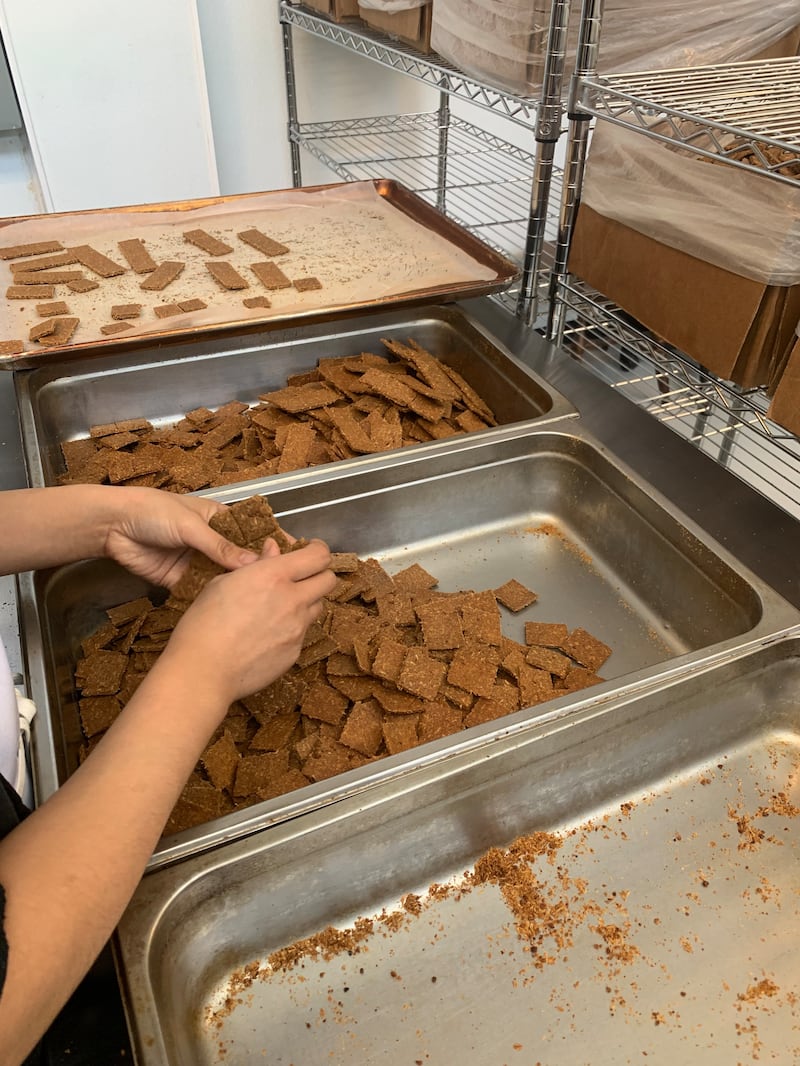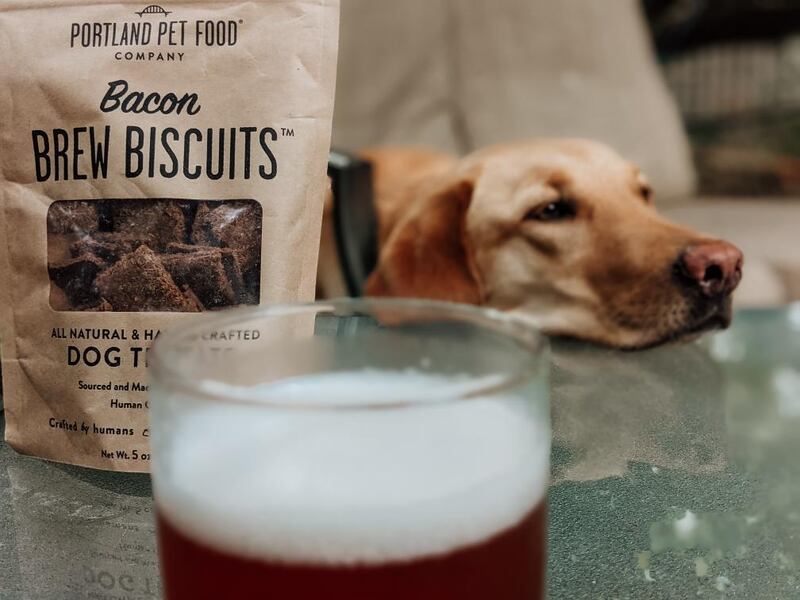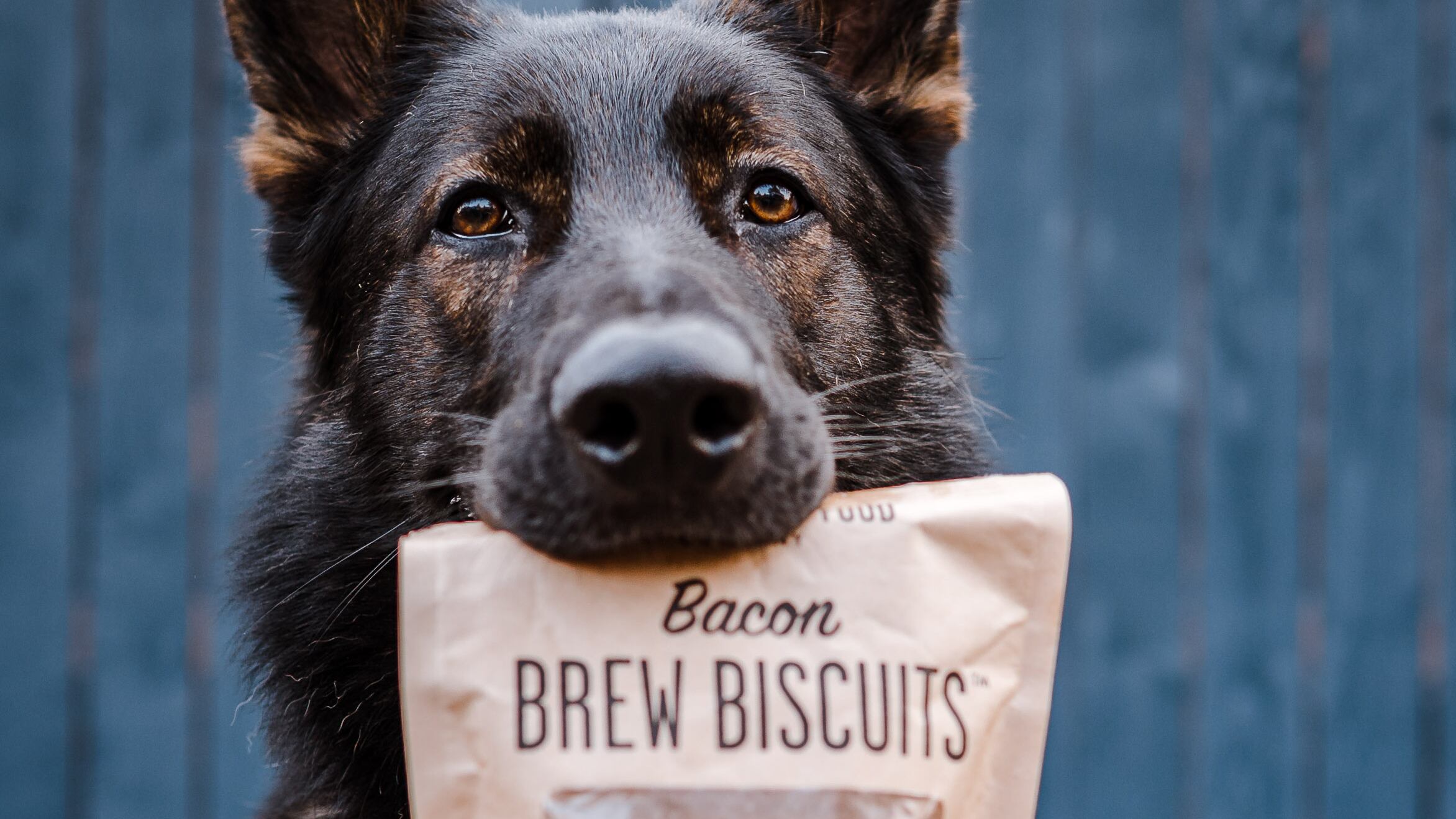Like other founders of small-scale food startups, Kate McCarron hoped that Portland-area farmers markets would give exposure and bring word-of-mouth clientele to her business. The only problem? Those outlets didn’t have much interest in her product: individually packaged dog meals made with all-natural, U.S. Department of Agriculture-certified ingredients.
“They didn’t want pet food,” McCarron says. “I think they’re very supportive of local bakers and vendors. It’s because it wasn’t human food.”
She did, however, discover a loophole. The markets would welcome a booth selling dog treats, which is why Portland Pet Food Company created a line of biscuits that not only maintained the brand’s commitment to canine nutrition but also ended up using an abundant byproduct of the city’s many breweries: spent grain.

For the small percentage of Portlanders who’ve yet to tour one of those brewhouses and get a tutorial on the grain-to-glass process, beer making involves soaking cereals—typically malted barley—in hot water to break down starch into fermentable sugars. The grain is then deemed “spent” once most of those soluble compounds have been extracted, leaving behind a substance that resembles water-logged Grape-Nuts. And while this barley porridge—rich in protein and fiber—wouldn’t look particularly appetizing on a plate, livestock love it, which has led to a symbiotic relationship between brewers and farmers.
Yet not every brewery has a ranch hand on speed dial, so plenty of spent grain is still tossed. McCarron began Googling “dog treats” and discovered people were sharing recipes that employed homebrewers’ used barley, so she decided her farmers market entry could lighten the industry’s load of leftovers.
“I went to some of the larger breweries first and, of course, they had their own farms,” she says. “So I started reaching out to smaller breweries.”
In 2014, Portland Pet Food began baking what it dubbed Brew Biscuits by collecting one bucket of grain at a time on the days Coalition Brewing made new batches of beer. Eight years later, the company has significantly expanded (and Coalition has since closed). It now requires pallets of grain buckets, supplied by both Hopworks and Ruse.
This July, the business shipped its first order of Brew Biscuits to all Whole Foods Markets nationwide. That growth means more spent grain will be diverted from landfills to dog bellies. In 2021, Portland Pet Food offset 13,000 pounds of sludge—the amount needed to make 7,500 gallons of beer. This year, the company expects to upcycle closer to 30,000 pounds of spent grain, which would produce 17,000 gallons of beer, or 136,000 pints.
How’s the flavor? Well, varieties include Carlton Farms nitrate-free bacon, organic pumpkin and hearty beef broth. “We don’t encourage humans to eat them,” McCarron laughs. “But many humans do taste them at trade shows. I should probably bring along some cheese for a complement.”

